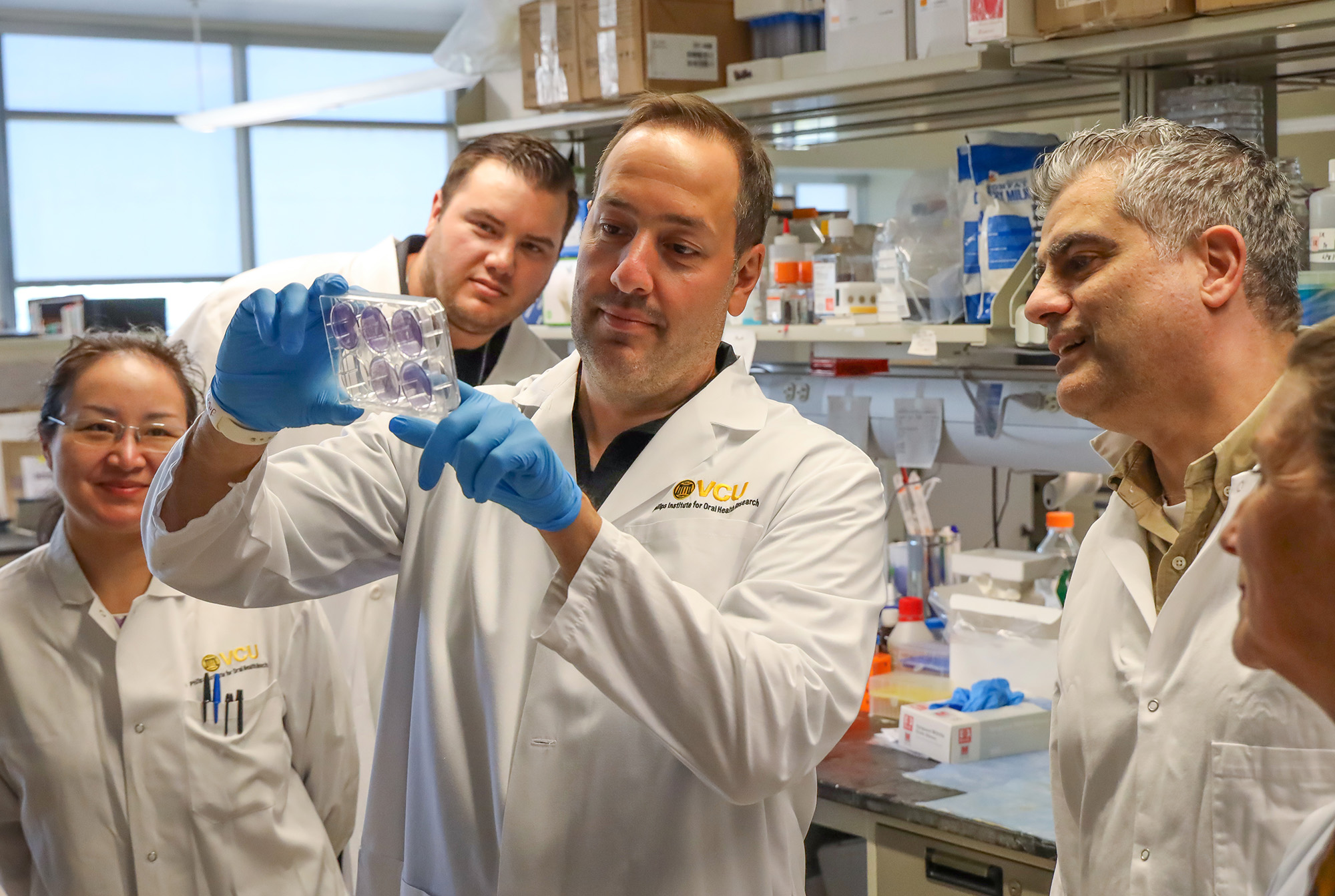Latest News
Research, Center News & Funding
Massey researcher to be awarded grants totaling more than $6.3M to fight pediatric cancers
Oct 26, 2023

Anthony Faber, Ph.D., co-leader of the Developmental Therapeutics research program and Natalie N. and John R. Congdon, Sr. Endowed Chair in Cancer Research at VCU Massey Comprehensive Cancer Center, is being awarded four grants totaling more than $6.3 million to aid in the development of new targeted therapies for neuroblastoma and synovial sarcoma, two rare cancers affecting children and young adults.
Three of the grants are Research Project Grants (R01s) to be awarded by the National Cancer Institute, with two of the research projects focusing on neuroblastoma and the other on synovial sarcoma. The fourth grant is a smaller award from the Department of Defense that complements the NCI-funded synovial sarcoma research.
Neuroblastoma is a type of cancer that develops in nerve tissue, most commonly in the glands around the kidneys. While some progress has been made in recent years, high-risk neuroblastoma is responsible for the most cancer-related deaths in children 5 years and younger. Synovial sarcoma is another rare cancer that affects both children and young adults. It tends to occur near major joints, such as the knee, and often spreads into other regions of the body. The 15-year survival rate for metastatic synovial sarcoma is less than 50%.
Anthony Faber, Ph.D, explains more about the types of cancer and development of new therapies that the grants are aimed at helping.
“The cancers that we’re studying in these grants are driven by transcriptional modifiers,” said Faber, who is also an associate professor in the Phillips Institute for Oral Health Research at the VCU School of Dentistry. “These cancers don’t have targeted therapy options because it is difficult to develop drugs that target transcriptional modifiers. However, we believe that we have uncovered biological processes that could lead to new therapies complementing current standards of care.”
When cells replicate, a process of transcription takes place where a segment of DNA, which contains the information needed for cellular replication, is copied into RNA. The proteins that help monitor and control the process are known as transcriptional modifiers. In cancer, these proteins are often erroneously altered, leading to the development of cancer.
In these projects, Faber and his team are focusing on the activity of two transcriptional modifiers, a fusion protein called SS18-SSX that is found exclusively in synovial sarcoma, and one found in high-risk neuroblastoma, called MYCN.
One of the NCI-funded grants focuses on MYCN-amplified neuroblastoma, a more lethal subtype in which the MYCN protein is expressed at much higher levels than typically observed. The researchers will be testing the effectiveness of a class of drugs known as ferroptosis inducers. Ferroptosis is a form of programmed cell death discovered fairly recently that is misregulated in several tumors.
The three other grants are testing a new type of drug known as a SUMOylation inhibitor, with one project testing them against MYCN-amplified neuroblastoma and the others focusing on synovial sarcoma. Through a process of genetic screening, the team found these two cancers were both uniquely sensitive to the drug. Now, Faber’s group will attempt to discover why.
“I’m very excited by the teams that we have assembled to take on these projects–we have a number of external collaborators from universities across the world whose expertise integrate well with the strengths we have here at VCU. Ultimately, we want to offer new hope to patients suffering from these cancers,” Faber said. “We believe these treatment approaches could complement existing therapies such as chemotherapy and radiation, and, based on our results, we are already discussing plans with Dr. Andrew Poklepovic, the associate director of clinical research at Massey, to move this drug into clinical trials.”
Faber added that biomedical research is costly.
“We talk about food inflation and energy inflation, but there’s been biomedical research inflation going on for years and years,” said Faber. “These big grants are really essential to be able to do any of these experiments and to push this research forward.”
Written by: John Wallace
Related News
Research
“We’re aiming for a cure.” Massey and VIMM researchers achieve potential breakthrough in brain cancer treatmentJun 24, 2025
Research
Massey researchers discover new genetic target that could shape the future of liver cancer treatmentJun 23, 2025
Research
Virginia health leaders emphasize community impact, collaboration at Virginia Public Health Summit on CancerJun 10, 2025

Get access to new, innovative care
Treatments in clinical trials may be more effective or have fewer side effects than the treatments that are currently available. With more than 200 studies for multiple types of cancers and cancer prevention, Massey supports a wide array of clinical trials.

Find a provider
Massey supports hundreds of top cancer specialists serving the needs of our patients. Massey’s medical team provides a wealth of expertise in cancer diagnosis, treatment, prevention and symptom management.
